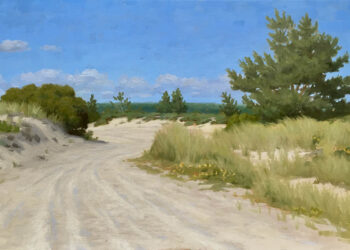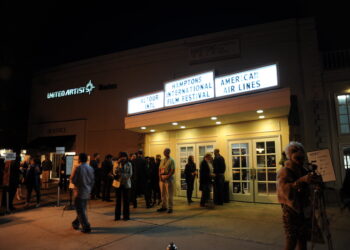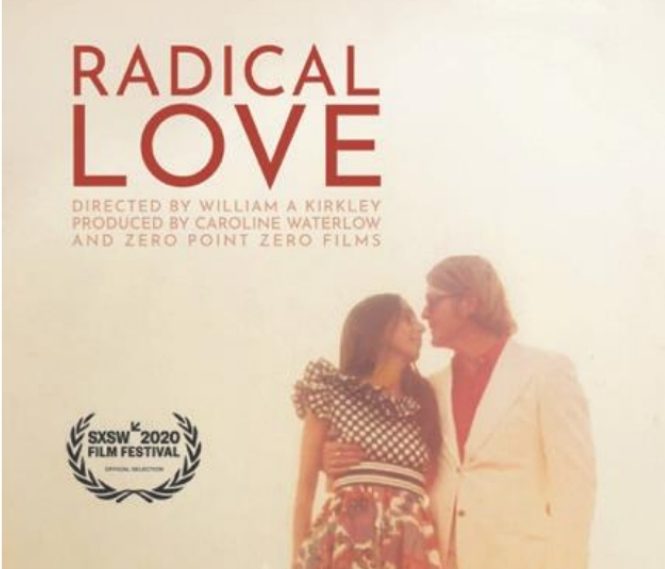
On Sunday, October 10th, the 29th Hamptons Film Festival held a screening of “Radical Love” at the Sag Harbor Cinema. The film revolves around the historic Hamptons oceanfront estate, Kilkare, as it’s prepared to be sold, strolling down Eleanora’s memories with her late husband, lawyer Michael Kennedy. It explores the subversive political activism and deep connection of husband-and-wife legal team Michael and Eleanora Kennedy.
I spoke to Eleanor Kennedy about her marriage with Michael, anti-war activism, socialite status, and High Times Magazine.
How did you and Michael meet?
Eleanora Kennedy: I was very young, and I was visiting in Fort Knox Kentucky. Michael was a first Lieutenant in the military, and he had been in law school in those days. There was something called ROTC Reserve with training during the Vietnam War; they had a draft and if you were in college, you got a number to be an officer when you graduated. If you were working when that number came up, no matter what you’re doing you got pulled in. He went to Fort Knox Kentucky and I was visiting at a party for the officers club and there he was. We fell madly in love in about three minutes. In New York City, he was staff counsel there for the emergency civil liberties committee and I was in fashion and graduated from the Fashion institute of Technology and worked in fashion. We had different worlds and came together very well. We lived in New York then we moved to San Francisco for seven years and then back to New York.
Your daughter Anna Kennedy explained that the American Flag was hung up on the pole for Michael Kennedy’s funeral and that he requested that the military attend the wake, but he wasn’t a fan of the government. Why do you think he requested this?
Eleanora Kennedy: When you’re an officer you can have that option in the United States. You may have a military funeral and he did want it, Anna was shocked. The flag was put on his coffin and at the wake the Marines marched in. Everyone stops. They play taps and they fold the flag, and they bring it to the widow and say the president of the United States thanks you for your husband’s service in the military. We took the flag and he had said to us in advance when he was dying, “I want you to hang the flag on the pole at Kilkare for one year and then take it down and bury it in my beloved Zen Garden.” It was all very moving. I loved him so much, He was my whole world.
You and your husband were a strong legal team seeking justice for all. How did you two get started with activism?
Eleanora Kennedy: He was steeped in politics and humanism and progressive work from when he was in college. When I met him, I was an Italian Catholic young woman and a humanist, but I didn’t have a political sway. My family was very conservative, they were immigrants. Michael was completely steeped in morality, and he felt this was the most immoral war. It was very controversial at the time – the country was split right down the middle. He was my instructor in political science 101. I respected him. I really revered him, and I trusted him. We built our lives then in being advocates for people who were marginalized and misunderstood. All the while we nurtured each other but we were taking care of people who are disenfranchised, from civil rights to the Vietnam War to gay liberation. If it was happening, he was there and I was with him.
Did both of you always want to make a film about your relationship and activism, or were you persuaded?
Eleanora Kennedy: Michael died never knowing there would be a film. Michael wouldn’t have a Wikipedia page. He was extremely humble. He would like to get his work done and that was it. He was a wonderful rogue. We would call him a non-practicing Batman. When he died, Michael John Kennedy now has a huge Wikipedia page. Director, William Kirkley had interviewed Michael when he was dying for another film The Brotherhood of Eternal Love and he said, “I just need 2 minutes” and Michael was so sick at that time and we said “OK two minutes”. Two and half hours later, Michael just let it all out. William came back and said “I would really love to make a film about this man he’s just extraordinary” and he joined forces with an Academy Award winning producer, Caroline Waterlow, who had just won an Oscar for OJ Made In America. She read the obituary in the New York Times, which was quite extensive featuring all his cases. She said she would like to do a film about someone who’s still redeeming like OJ and so they joined forces. I said, “OK sure, why not” and we were off and running. My daughter helped a lot with the old archives. This film is 24 minutes but this will turn into a much longer documentary.
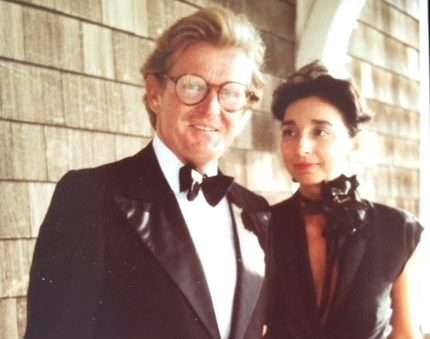
You talk about using your privilege and fashion style to be able to carry out certain things that most people would have not been able to get away with. You said, “that Chanel suit took me places where no one else would tread.” How did you manage leading this double life?
Eleanora Kennedy: I led two lives. One I was clearly and very upfront in the social world and fashion world, and in the other I was a complete activist trying to stop the Vietnam War. The War was raging, and people were dying, and I would have done anything, legal or illegal, to stop that war and I did. I have no regrets. Not one. I was actually quite easy; at one point I was about to be subpoenaed to testify against the Weathermen, and under that condition you either testified for the life of the grand jury which is 18 months, or you are going to jail. I wasn’t going to testify – these were people I was working with. Secondly, it was inconceivable so we went on the run and left the country and that was hard. Neither my family nor my friends knew why but it was a very long vacation. Once things calmed, down and then we came back so that was hard. The hardest part of it. I was frightened. He was fearless but I was fearful.
Tell us about your involvement with the High Times Magazine?
Eleanora Kennedy: One of his friends founded it in 1974, Tom Forçade and Michael became the legal counsel general counsel for High Times corporation magazine. When Tom died, Michael took over as not only legal counsel but chairman when he wasn’t doing his trials. When Michael died he left me his shares, so this little lady now owns a third of the magazine, which is kind of interesting and funny. I think 29 states are legal for medical and probably 20 for recreational so it’s come a long way and that was very interesting to the New York Public Library when they took his archives. They said “someday years from now someone is going to want to know how it ever got legalized and they’ll come here to the library and will be able to pull out these cases that he worked on.”
What is your activism currently concentrated on?
Eleanora Kennedy: I care deeply about human trafficking, and I work with the United Nations on that. I care deeply about the environment. These are all things considered mainstream compared to what I was doing back then. At this point there are no battles to be fought like the ones we fought. I’m very deeply concerned about our planet and that’s what I’m working on. The human trafficking is the subject that nobody wants to talk about that’s really been on the rise since the Internet. It’s really gone way higher really fast because you can go on the Internet now and order whatever you want – it’s horrifying. It’s the second most profitable industry in the world next to drugs and arms. It’s not dinner conversation; people talk about drugs and arms forever and it’s OK but bring up human trafficking and it’s difficult. More women are getting involved and taking a very good stance against it. There’s so much corruption and there’s so much money but you don’t give up, you just keep chipping away and doing what you can. That’s what I’m doing.
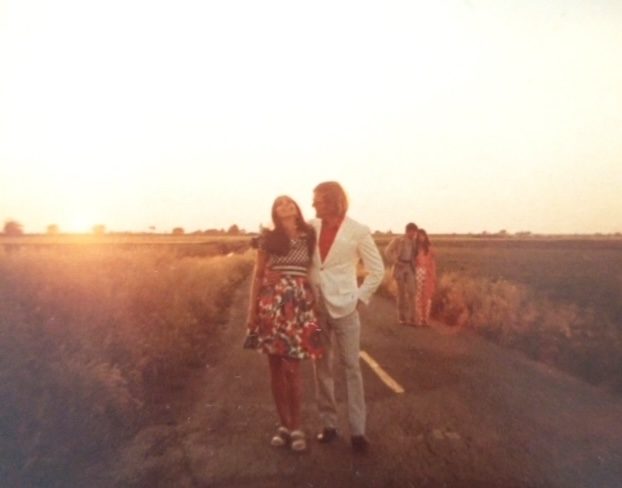
What would you like viewers to take away from this film?
Eleanora Kennedy: Hopefully, young people will have a notion that they can contribute even in the smallest way. Whether it’s environmentally in some way. That they don’t have to live in a cave – we didn’t, we lived very well. You can be an activist; a moral activist and there are alternatives to Wall Street. Being active politically and environmentally is a great alternative. If you’re a lawyer, you don’t have to go to Wall Street and make millions. You could be an environmental lawyer and make hundreds of thousands. You’re not going to starve but you can have your conscience balanced out. It’s all balancing I think in life, and so I’m hoping people will be inspired by what Michael did with his life and right wrongs, that is so important.


